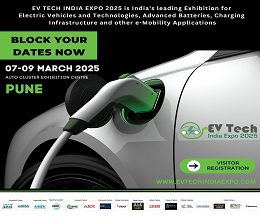Brazil Electric Bus Market (2025-2031) | Analysis, Size, Revenue, Trends, Growth, Forecast, Industry, Outlook, Value & Segmentation
Market Forecast By Vehicle Type (Battery Electric Bus (BEB), Plug-In Electric Bus (PHEB) & Hybrid Electric Bus (HEB)), By Charging Infrastructure (Ground Contact, Roof Pantograph, Gantry Pantograph, Plug Only & Induction), By End User (Public & Private), By Regions (Northern Region, Southern Region, North Eastern Region, Central Western Region and Southern East Region) and Competitive Landscape.
| Product Code: ETC000893 | Publication Date: Jul 2024 | Updated Date: Dec 2024 | Product Type: Report | |
| Publisher: 6Wresearch | No. of Pages: 70 | No. of Figures: 35 | No. of Tables: 5 | |
Brazil Electric Bus Market Competition 2023
Brazil Electric Bus market currently, in 2023, has witnessed an HHI of 10000, Which has decreased substantially as compared to the HHI of 10000 in 2017. The market is moving towards Highly concentrated. Herfindahl index measures the competitiveness of exporting countries. The range lies from 0 to 10000, where a lower index number represents a larger number of players or exporting countries in the market while a large index number means fewer numbers of players or countries exporting in the market.
Brazil Export Potential Assessment For Electric Bus Market (Values in USD Thousand)
Topics Covered in the Brazil Electric Bus Market Report
Brazil Electric Bus Market report thoroughly covers the market by Vehicle Type, by Charging Infrastructure, by End User, and by Regions. The market report provides an unbiased and detailed analysis of the ongoing market trends, opportunities/high growth areas, and market drivers which would help the stakeholders to devise and align their market strategies according to the current and future market dynamics.
Brazil Electric Bus Market Synopsis
Brazil Electric Bus Market has been experiencing substantial growth in recent years compelled by several factors such as government initiatives, increasing concern for the environment, and advancements in technology. With its large population and growing urbanization, Brazil has been facing major challenges concerning air pollution and traffic congestion. As a result, the government has implemented various policies to encourage the adoption of clean energy vehicles, including electric buses.
According to 6Wresearch, the Brazil Electric Bus Market size is expected to grow at a significant CAGR of 7.8% during the forecast period 2025-2031. This market growth can be attributed to various factors, such as government policies toward sustainable and environmentally-friendly transportation solutions, and rising awareness among consumers about environmental issues and the benefits of using electric buses. This has resulted in increased demand for electric buses. Furthermore, technological advancements have also played a significant role in driving the Brazil Electric Bus Market growth.
Despite, the strong potential for market growth and development Brazil Electric Bus Market faces certain challenges that must be addressed. The country's public transportation system primarily relies on diesel buses, which is harmful to the environment. As a result, both domestic and international sources impose pressure on Brazil to turn towards more sustainable modes of transportation. One significant challenge is the high cost associated with the initial investment required for purchasing these electric buses which is higher than the traditional diesel buses. Also, the limited availability of technology and expertise in manufacturing electric buses locally can hinder the growing demand for these vehicles.
Brazil Electric Bus Market: Leading Players
The Brazil Electric Bus Market is dominated by several key players. BYD, a Chinese company, has been actively producing and promotion electric buses in Brazil. Volvo Buses, a Swedish firm, was among the first to introduce electric buses to Brazil and has since then expanded its presence. Another significant player is Mercedes-Benz, a German company that has been a leader in the traditional bus market in Brazil and has also made significant advances in the electric bus sector. Other important players include Chinese companies such as Yutong and Sunlong as well as local manufacturers such as Marcopolo and Comil. These companies have been actively involved in the development and producing electric buses in Brazil, contributing to the market's overall growth.
Brazil Electric Bus Market: Government Regulations
The Brazilian government has lately implemented regulations to enhance the adoption of electric buses nationwide. A primary initiative is the National Program for Energy Efficiency in Urban Transportation (PNUMETU), which promotes clean and energy-efficient vehicles in urban public transport. Cities with populations over 500,000 are mandated to gradually replace diesel-powered buses with electric ones under this program. Additionally, the government has introduced tax incentives for electric bus purchases, including exemptions and reductions on import duties, sales taxes, and registration fees, making an investment in electric buses more financially attractive for public transportation companies. Moreover, a national energy efficiency standard for urban buses has been established, ensuring that electric buses reduce emissions and enhance public transportation efficiency.
Future Insights of the Market
Looking ahead, the Brazil Electric Bus Market will continue to grow at a rapid pace in the region, with more government support and technological advancements. With rising awareness about the benefits of electric buses and a trend towards sustainability, it is evident that they will play a major role in shaping the future of public transportation in Brazil. Thus, it is crucial for both manufacturers and consumers to adopt this transformation and work towards building a cleaner and greener future for generations to come. Overall, the future looks bright for the electric bus market in Brazil and it is an exciting time to be a part of this industry.
Market Segmentation by Vehicle Type
According to Dhaval, Research Manager, 6Wresearch, Battery Electric Bus (BEB) have achieved the highest share in the Brazilian market. This can be attributed to their zero-emission feature, making them environmentally friendly and sustainable.
Market Segmentation by Charging Infrastructure
Among all other categories, the ground contact system has been observed to attain the highest share in the Brazil Electric Bus Market. This system involves installing a charging plate beneath the surface where the bus parks or stops.
Market Segmentation by End User
Currently, the public end user category holds a larger share of the electric bus market in Brazil. This can be attributed to the government's efforts to promote sustainable transportation and reduce air pollution.
Market Segmentation by Regions
With a growing awareness of environmental issues and a shift towards eco-friendly solutions, the Northern region is expected to see a significant rise in the market share for electric buses.
Key Attractiveness of the Report
- 10 Years Market Numbers.
- Historical Data Starting from 2021 to 2024.
- Base Year: 2024
- Forecast Data until 2031.
- Key Performance Indicators Impacting the Market.
- Major Upcoming Developments and Projects.
Key Highlights of the Report:
- Brazil Elctric Bus Market Overview
- Brazil Electric Bus Market Outlook
- Brazil Electric Bus Market Forecast
- Historical Data of Brazil Electric Bus Market Revenues & Volume for the Period 2021-2031
- Brazil Electric Bus Market Size and Market Forecast of Revenues & Volume, Until 2031
- Historical Data of Brazil Electric Bus Market Revenues & Volume, by vehicle types, for the Period 2021-2031
- Market Size & Forecast of Brazil Electric Bus Market Revenues & Volume, by vehicle types, Until 2031
- Historical Data of Brazil Electric Bus Market Revenues and Volume, By Charging Infrastructure, for the Period 2021-2031
- Market Size & Forecast of Brazil Electric Bus Market Revenues and Volume, By Charging Infrastructure, Until 2031
- Historical Data of Brazil Electric Bus Market Revenues and Volume, By End Users, for the Period 2021-2031
- Market Size & Forecast of Brazil Electric Bus Market Revenues and Volume, By End Users, Until 2031
- Historical Data of Brazil Electric Bus Market Revenues and Volume, By Regions, for the Period 2021-2031
- Market Size & Forecast of Brazil Electric Bus Market Revenues and Volume, By Regions, Until 2031
- Market Drivers and Restraints
- Brazil Electric Bus Market Price Trends
- Brazil Electric Bus Market Trends and Industry Life Cycle
- Porter’s Five Force Analysis
- Market Opportunity Assessment
- Brazil Electric Bus Market Share, By Types, By Regions
- Brazil Electric Bus Market Share, By Types, By Players
- Brazil Electric Bus Market Overview on Competitive Benchmarking
- Company Profiles
- Key Strategic Recommendations
Market Covered
The report offers a comprehensive study of the subsequent market segments:
By Vehicle Types
- Battery Electric Bus (BEB)
- Plug-In Electric Bus (PHEB)
- Hybrid Electric Bus (HEB)
By Charging Infrastructure
- Ground Contact
- Roof Pantograph
- Gantry Pantograph
- Plug Only
- Induction
By End User
- Public
- Private
By Regions
- Northern Region
- Southern Region
- North Eastern Region
- Central Western Region
- Southern East Region
Brazil Electric Bus Market (2025-2031): FAQs
| 1. Executive Summary |
| 2. Introduction |
| 2.1 Report Description |
| 2.2 Key Highlights of The Report |
| 2.3 Market Scope & Segmentation |
| 2.4 Research Methodology |
| 2.5 Assumptions |
| 3. Brazil Electric Bus Market Overview |
| 3.1 Brazil Country Indicators |
| 3.2 Brazil Electric Bus Market Revenues & Volume 2021-2031F |
| 3.3 Brazil Electric Bus Market Revenue Share, By Vehicle Types, 2021 & 2031F |
| 3.4 Brazil Electric Bus Market Revenue Share, By Charging Infrastructure, 2021 & 2031F |
| 3.5 Brazil Electric Bus Market Revenue Share, By End User, 2021 & 2031F |
| 3.6 Brazil Electric Bus Market Revenue Share, By Regions, 2021 & 2031F |
| 3.7 Brazil Electric Bus Market - Industry Life Cycle |
| 3.8 Brazil Electric Bus Market - Porter’s Five Forces |
| 4. Brazil Electric Bus Market Dynamics |
| 4.1 Impact Analysis |
| 4.2 Market Drivers |
| 4.3 Market Restraints |
| 5. Brazil Electric Bus Market Trends |
| 6. Brazil Electric Bus Market Overview, By Vehicle Types |
| 6.1 Brazil Electric Bus Market Revenues & Volume, by Hybrid 2021-2031F |
| 6.2 Brazil Electric Bus Market Revenues & Volume, by Battery 2021-2031F |
| 6.3 Brazil Electric Bus Market Revenues & Volume, by Plug-in Hybrid 2021-2031F |
| 7. Brazil Electric Bus Market Overview, By Charging Infrastructure |
| 7.1 Brazil Electric Bus Market Revenues, By Ground Contact, 2021-2031F |
| 7.2 Brazil Electric Bus Market Revenues, By Roof Pantograph , 2021-2031F |
| 7.3 Brazil Electric Bus Market Revenues, By Gantry Pantograph, 2021-2031F |
| 7.4 Brazil Electric Bus Market Revenues, By Plug Only , 2021-2031F |
| 7.5 Brazil Electric Bus Market Revenues, By Induction, 2021-2031F |
| 8. Brazil Electric Bus Market Overview, By End User |
| 8.1 Brazil Electric Bus Market Revenues & Volume, By Public, 2021-2031F |
| 8.2 Brazil Electric Bus Market Revenues & Volume, By Private, 2021-2031F |
| 9. Brazil Electric Bus Market Overview, By Regions |
| 9.1 Brazil Electric Bus Market Revenues, By North-East Region, 2021-2031F |
| 9.2 Brazil Electric Bus Market Revenues, By South-East Region, 2021-2031F |
| 9.3 Brazil Electric Bus Market Revenues, By Northern Region, 2021-2031F |
| 9.4 Brazil Electric Bus Market Revenues, By Mid-North Region, 2021-2031F |
| 10. Brazil Electric Bus Market - Key Performance Indicators |
| 11. Brazil Electric Bus Market - Opportunity Assessment |
| 11.1 Brazil Electric Bus Market Opportunity Assessment, By Vehicle Types 2031F |
| 11.2 Brazil Electric Bus Market Opportunity Assessment, By Infrastructure 2031F |
| 11.3 Brazil Electric Bus Market Opportunity Assessment, By End User, 2031F |
| 12. Brazil Electric Bus Market Competitive Landscape |
| 12.1 Brazil Electric Bus Market Revenue Share, By Company, 2024 |
| 12.2 Brazil Electric Bus Market Competitive Benchmarking, By Operating & Technical Parameters |
| 13. Company Profiles |
| 14. Key Recommendations |
| 15. Disclaimer |
Market Forecast By Vehicle Type (Battery Electric Bus (BEB), Plug-In Electric Bus (PHEB) & Hybrid Electric Bus (HEB)), By Charging Infrastructure (Ground Contact, Roof Pantograph, Gantry Pantograph, Plug Only & Induction), By End User (Public & Private), By Regions (Northern Region, Southern Region, North Eastern Region, Central Western Region and Southern East Region) and Competitive Landscape.
| Product Code: ETC000893 | Publication Date: Sep 2021 | Product Type: Report | |
| Publisher: 6Wresearch | No. of Pages: 70 | No. of Figures: 35 | No. of Tables: 5 |
Latest 2023 Developments of the Brazil Electric Bus Market
Brazil Electric Bus Market developments include the shift of market players towards electric buses owing to a high degree of air pollution in the city of Sao Paulo. The government plans to replace diesel-powered buses with low-emission buses. Also, INOVAR-AUTO, a government program to boost vehicle technology innovation, which fostered market competitiveness by reassuring automobile vendors to manufacture more efficient, safer, and technology-advanced vehicles will help in the development of electric buses in the country.
Brazil Electric Bus Market Synopsis
Brazil Electric Bus Market is growing rapidly on the back of surging charging infrastructure for electric vehicles along with increasing adoption of emission-free transportation across Brazil. Further, government initiatives such as INOVAR-AUTO program to enhance vehicle technology innovation would be major factor driving the demand for electric bus market over the coming years. However, high tax burdens along with high initial procurement costs would restrain the market growth.
According to 6Wresearch, Brazil Electric Bus Market size is anticipated to register growth during 2019-25. In the overall Brazil electric bus market share, Southeastern regions of Brazil including Sao Paulo and Rio de Janeiro have captured major revenue pie in 2018 and are expected to lead throughout the forecast period. However, North Eastern regions of Brail including Pernambuco, Sergipe, and Ceara are expected to witness high growth over the coming years.
In Brazil small electric buses with lengths less than 10 meters are more in demand and are expected to generate high revenue over the next five years as well owing to high consumer preference for smaller than 10-meter buses by transport authorities in the region.
The Brazil Electric Bus market report thoroughly covers the market by vehicle types, charging infrastructure, end users, and regions. The Brazil Electric Bus market outlook report provides an unbiased and detailed analysis of the ongoing Brazil Electric Bus market trends, opportunities/high growth areas and market drivers which would help the stakeholders to devise and align their market strategies according to the current and future market dynamics.
Key Highlights of the Report:
- Brazil Electric Bus Market Overview
- Brazil Electric Bus Market Outlook
- Brazil Electric Bus Market Forecast
- Historical Data of Brazil Electric Bus Market Revenues & Volume for the Period 2015-2018
- Brazil Electric Bus Market Size and Market Forecast of Revenues & Volume, Until 2025
- Historical Data of Brazil Electric Bus Market Revenues & Volume, by vehicle types, for the Period 2015-2018
- Market Size & Forecast of Brazil Electric Bus Market Revenues & Volume, by vehicle types, Until 2025
- Historical Data of Brazil Electric Bus Market Revenues and Volume, By Charging Infrastructure, for the Period 2015-2018
- Market Size & Forecast of Brazil Electric Bus Market Revenues and Volume, By Charging Infrastructure, Until 2025
- Historical Data of Brazil Electric Bus Market Revenues and Volume, By End Users, for the Period 2015-2018
- Market Size & Forecast of Brazil Electric Bus Market Revenues and Volume, By End Users, Until 2025
- Historical Data of Brazil Electric Bus Market Revenues and Volume, By Regions, for the Period 2015-2018
- Market Size & Forecast of Brazil Electric Bus Market Revenues and Volume, By Regions, Until 2025
- Market Drivers and Restraints
- Brazil Electric Bus Market Price Trends
- Brazil Electric Bus Market Trends and Industry Life Cycle
- Porter’s Five Force Analysis
- Market Opportunity Assessment
- Brazil Electric Bus Market Share, By Types, By Regions
- Brazil Electric Bus Market Share, By Types, By Players
- Brazil Electric Bus Market Overview on Competitive Benchmarking
- Company Profiles
- Key Strategic Recommendations
Markets Covered
The Brazil Electric Bus Market report provides a detailed analysis of the following market segments:
By Vehicle Types:
- Battery Electric Bus (BEB)
- Plug-In Electric Bus (PHEB)
- Hybrid Electric Bus (HEB)
By Charging Infrastructure:
- Ground Contact
- Roof Pantograph
- Gantry Pantograph
- Plug Only
- Induction
By End Users:
- Public
- Private
By Regions:
- Northern Region
- Southern Region
- North Eastern Region
- Central Western Region
- Southern East Region
- Single User License$ 1,995
- Department License$ 2,400
- Site License$ 3,120
- Global License$ 3,795
Search
Related Reports
- UAV Market (2025-2031) | Size, Forecast, Value, Revenue, Trend, Growth, Analysis & Outlook
- Smart Speaker Market (2025-2031) | Size, Trends, Share, Outlook, Revenue, Forecast, Analysis, Value, Segmentation & Industry
- Microgrid Market (2025-2031) | Value, Share, Growth, Outlook, Industry, Companies, Trends, Revenue, Forecast, Analysis & Size
- Mobile Credential Reader Market (2025-2031) | Analysis, Industry, Size, Share, Revenue, Forecast, Trends, Growth, Value & Outlook
- North America Planting Equipment Market (2024-2030) | Outlook, Size, Growth, Companies, Revenue, Share, Analysis, Forecast, Industry, Value & Trends
- Light Fidelity (Li-Fi) Market (2025-2031) | Share, Revenue, Trends, Size, Industry, Forecast, Companies, Growth, Outlook, Analysis & Value
- UAE Ready Mix Concrete Market (2025-2031) | Industry, Segmentation, Share, Analysis, Forecast, Companies, Outlook, Competitive Landscape, Trends, Value, Growth, Size & Revenue
- Australia Bearings Market (2024-2030) | Growth, Analysis, Trends, Value, Outlook, Industry, Share, Forecast, Size, Segmentation & COVID-19 IMPACT
- India Bakery Retailing Market (2024-2030) | Segmentation, Growth, Industry, Value, Companies, Outlook, Share, Forecast, Trends, Competitive Landscape, Analysis, Size & Revenue
- Heat-Not-Burn Tobacco Product Market (2025-2031) | Share, Forecast, Companies, Growth, Value, Analysis, Size, Outlook, Industry, Revenue & Trends
Industry Events and Analyst Meet
Our Clients
Whitepaper
- Middle East & Africa Commercial Security Market Click here to view more.
- Middle East & Africa Fire Safety Systems & Equipment Market Click here to view more.
- GCC Drone Market Click here to view more.
- Middle East Lighting Fixture Market Click here to view more.
- GCC Physical & Perimeter Security Market Click here to view more.
6WResearch In News
- India's Printer Market Faces 20.7% Decline in Q4 2023: Epson and HP Lead Amidst Downturn
- India's Camera Market Sees 8.9% Decline in Q4 2023; Canon Leads with 38.4% Share
- Doha a strategic location for EV manufacturing hub: IPA Qatar
- Demand for luxury TVs surging in the GCC, says Samsung
- Empowering Growth: The Thriving Journey of Bangladesh’s Cable Industry
- The future of gaming industry in the Philippines













